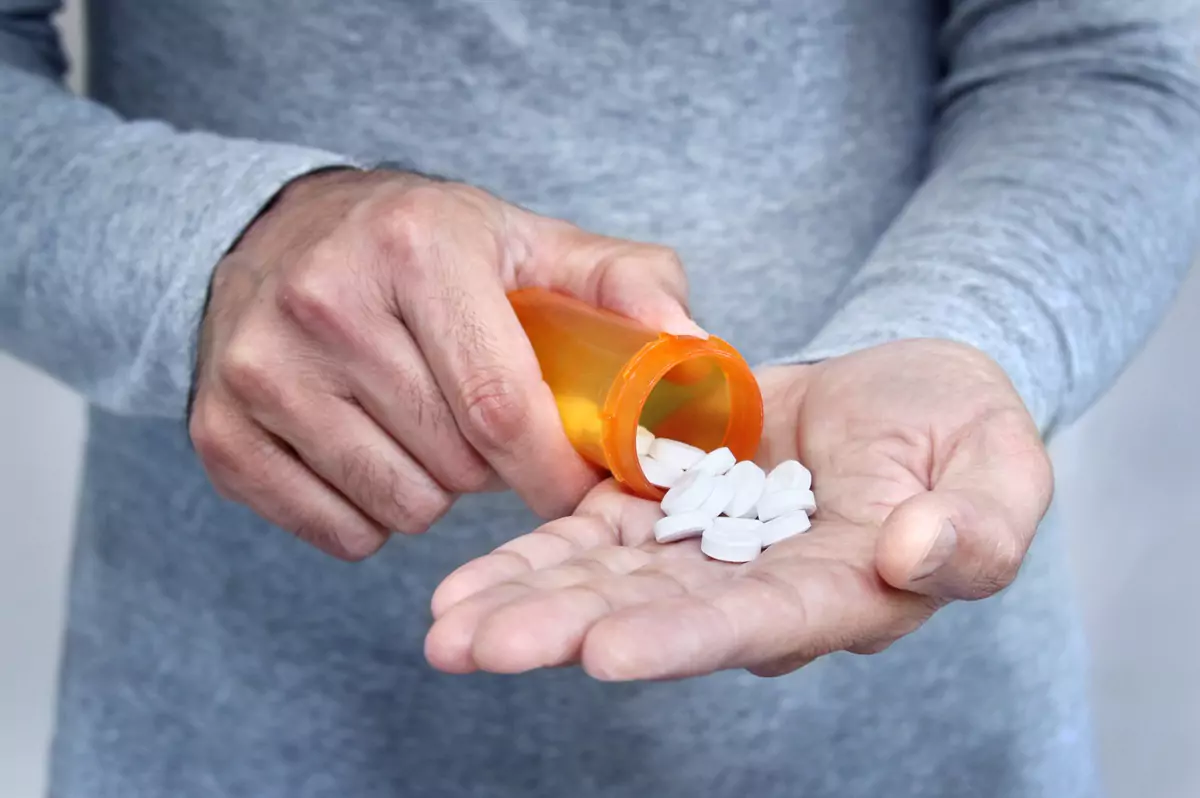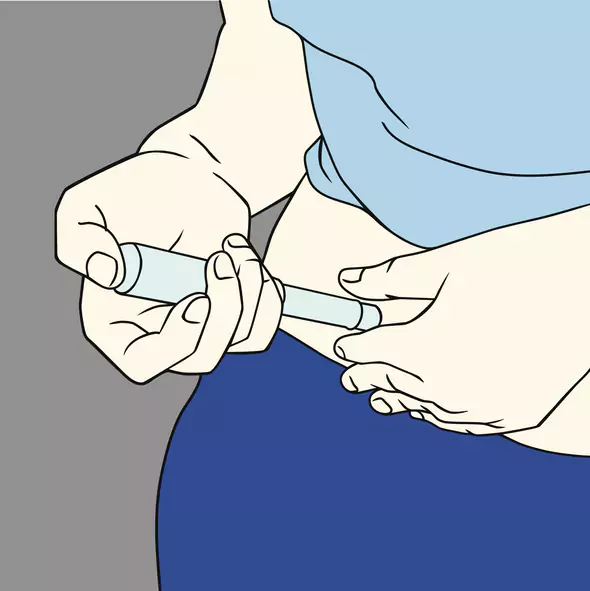





Does Glipizide have Long Term Side Effects?


Table of Contents
- What is Glipizide?
- Understanding Side Effects
- Delving Into the Side Effects of Glipizide
- Rare but Severe Side Effects
- Managing Side Effects
- Monitoring Blood Sugar Levels
- Maintaining a Healthy Lifestyle
- The Role of Supplements: SugarMD Super Berberine
- Comparing Glipizide with Other Similar Medications
- A Comprehensive Comparison
- About The Author
In the realm of diabetes management, understanding the long-term side effects of medications is crucial. One such medication is Glipizide, a commonly prescribed drug for type 2 diabetes. This article aims to delve into finding the answer of does glipizide have long term side effects?
What is Glipizide?
Glipizide is an oral medication used to control high blood sugar levels in individuals with type 2 diabetes. It belongs to a class of drugs known as sulfonylureas, which stimulate the pancreas to produce more insulin. While Glipizide is beneficial in managing blood sugar levels, it's essential to understand its potential side effects, especially when used over a long period.
Understanding Side Effects
A side effect can be described as an unintended response that our bodies have to a certain medication. In simpler terms, it's what we experience aside from the desired effects of the drug. Side effects might manifest as soon as the medication is ingested, often leaving the individual uncomfortable or unwell. However these reactions, known as transient side effects, are usually temporary.
They typically diminish as our bodies gradually get accustomed to the new medication, eventually disappearing entirely. In contrast to transient side effects there are also long-term side effects. Unlike the former, which are fleeting these persist for extended periods.
They could possibly stick around even after our bodies have adapted to the medication. What's more disconcerting about long-term side effects is that they might not be immediately noticeable. They could surface only after the medication has been taken for a considerable amount of time. Because of this, understanding and being vigilant about potential long-term side effects is essential.
Delving Into the Side Effects of Glipizide
Let's take a closer look at a specific example to better understand long-term side effects. A medication called Glipizide, commonly used to manage blood sugar levels in individuals with diabetes, can have various side effects when used over a significant period of time. The most common side effect associated with Glipizide use is hypoglycemia, which is a medical term for unusually low blood sugar levels.
This can lead to a variety of symptoms such as dizziness, weakness and confusion. Another side effect often reported with long-term use of Glipizide is weight gain. This could complicate the health condition of the individual, especially if they are already grappling with obesity or other weight-related issues. Digestive problems like nausea, vomiting, or abdominal discomfort can also be triggered by this medication.
Rare but Severe Side Effects
In some rare instances, Glipizide use can even lead to severe skin reactions. These reactions might range from mild rashes to severe conditions like Stevens-Johnson syndrome, which is characterized by blistering and peeling skin. Additionally, Glipizide can also cause liver complications in rare cases. These could be as severe as liver failure, requiring immediate medical attention.
Managing Side Effects
Monitoring Blood Sugar Levels
One of the critical steps in managing Glipizide's side effects is regular monitoring of your blood sugar levels. This practice provides a consistent check on the effectiveness of the medication and indicates whether your body is responding well to the treatment. Regularly logging these results and observing the patterns in your blood sugar levels can also help inform your healthcare provider about the medication's effectiveness.
Maintaining a Healthy Lifestyle
A healthy lifestyle is another essential aspect of managing the side effects of Glipizide. A balanced diet not only aids in maintaining overall health but also plays a vital role in regulating blood sugar levels. Additionally, regular exercise can help increase insulin sensitivity and control blood glucose levels.
The Role of Supplements: SugarMD Super Berberine
In addition to prescribed medications like Glipizide, supplements can also aid in controlling blood sugar levels. SugarMD Super Berberine is one such supplement. It is a potent blend of dihydroberine and pure Ceylon cinnamon. This supplement is known for its ability to maintain healthy glucose levels and reduce inflammation. With these beneficial properties, SugarMD Super Berberine can be an effective tool in a diabetes management strategy.
Comparing Glipizide with Other Similar Medications
While Glipine is a popular choice for managing type 2 diabetes, other medications, such as Glimepiride and Glyburide, are also used. Each of these medications has its own set of benefits and side effects. For a more detailed comparison of these drugs, check out this article.
A Comprehensive Comparison
For a more in-depth understanding and comparison of these medications, refer to the provided article link. This information will help you better understand your treatment options, enabling you to make informed decisions about your healthcare.
In conclusion, managing Glipizide side effects involves a combination of regular blood sugar monitoring, maintaining a healthy lifestyle, staying in close contact with your healthcare provider and considering the use of supplements like SugarMD Super Berberine. Additionally, understanding other similar medications can provide you with a more comprehensive view of your treatment options.
About The Author
Meet Dr. Ahmet Ergin a highly skilled and dedicated endocrinologist with a passion for diabetes care. Dr. Ergin earned his medical degree with honors from Marmara University in Istanbul. He completed internal medicine residency and endocrinology fellowship at Cleveland Clinic.
Dr. Ergin is board-certified in Internal Medicine, Endocrinology, Diabetes and Metabolism due to his vast medical expertise. He's a certified diabetes educator, author of "The Ultimate Diabetes Book," and founder of "the SugarMD YouTube channel."
Dr. Ergin offers exceptional diabetes care to his patients in Port Saint Lucie, FL, helping them manage effectively. Disclaimer: These statements have not been evaluated by the Food and Drug Administration. Information on this website isn’t intended to treat, cure or prevent any disease. Discuss with your doctor and do not self-treat.
Written By Dr. Ahmet Ergin
469 total articles
Meet Dr. Ahmet Ergin, a highly skilled and dedicated endocrinologist with a passion for diabetes care. Dr. Ergin earned his medical degree with honors from Marmara University in Istanbul. He completed internal medicine residency and endocrinology fellowship at Cleveland Clinic. Dr. Ergin is board-certified in Internal Medicine, Endocrinology, Diabetes, and Metabolism due to his vast medical expertise. He's a certified diabetes educator, author of “The Ultimate Diabetes Book,” and founder of “the SugarMD YouTube channel.” Dr. Ergin offers exceptional diabetes care to his patients in Port Saint Lucie, FL, helping them manage effectively. For a closer look into his insights and experiences, connect with Dr. Ahmet Ergin on LinkedIn, Instagram, and YouTube.”
Disclaimer: These statements have not been evaluated by the Food and Drug Administration. Information on this website isn't intended to treat, cure or prevent any disease. Discuss with your doctor and do not self-treat.
Products













